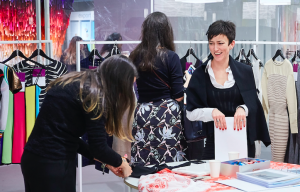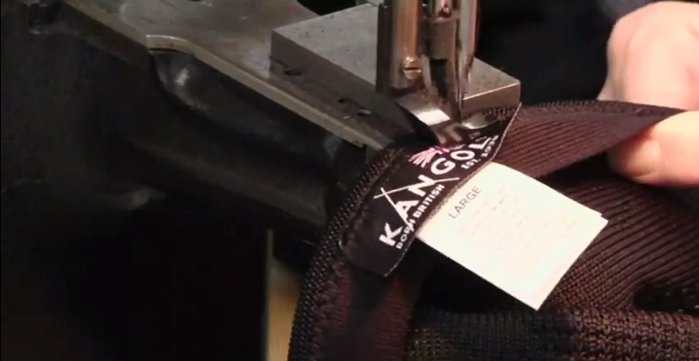
Maglificio Pini returns to Pitti Filati 88
The company reshored last year in an effort to create US manufacturing jobs.

31st May 2017
Knitting Industry
|
Adamstown, PA
Kangol, a famous hat brand worn by celebrities like Samuel L. Jackson, Brad Pitt and Gwen Stefani, which moved into a Pennsylvania factory last year from China, is now struggling financially due to the growing labour costs and as a result – decreasing profits, according to Houston Chronicle.
The company reshored last year in an effort to create US manufacturing jobs. Now, the 149-year-old company behind Kangol, Bollman Hat Co., says it is losing money on every kangaroo-logo cap knitted at its factory in Adamstown, 60 miles west of Philadelphia. "It has been certainly a bigger challenge than what we could've ever dreamed," said Don Rongione, Bollman's fedora-wearing president and CEO.
Footwear and clothing makers companies like Kangol started moving their production back to the US in the last ten or so years in a bid to have greater inventory control and proximity to US customers, in exchange for higher labour costs. As a result, US apparel production has increased by 50% since 2009, according to the American Apparel & Footwear Association.
KEEN outdoor footwear manufacturer began assembling footwear at a plant in Portland, OR, in 2010. Sportswear giant Under Armour opened a high-tech facility in Baltimore last year. "Obviously, if you have a plant in the United States, it's much easier to respond to trends, produce small runs and get product to market really quickly," said Nate Herman, the trade group's senior vice president of supply chain.
Last year, for the first time in decades, the number of manufacturing jobs created by US companies that moved operations back to the nation and by foreign companies investing in America exceeded the number of jobs lost by companies moving overseas, according to the Reshoring Initiative, a non-profit set up to bring factory jobs back to the US.
Yet, the US garment industry's production gains also show why President Donald Trump's campaign pledge to return manufacturing jobs to the US could prove difficult. Increased automation is making it cheaper to sew and knit in the US, but requires fewer workers. So, even as apparel makers crank out more US-made shirts and shoes, the industry is losing more jobs than it is creating. Moreover, more than 97% of America's wardrobe still comes from abroad.
“It's not going to be what it once was,” said Steven Frumkin, of the Fashion Institute of Technology in New York. "We're never going to employ as many people because of efficiencies and equipment."
Bollman says it now expects a relatively quick turnaround by making Kangol, its most important brand, the old-fashioned way, once US workers get better at making the popular Kangol caps. The employee-owned company raised more than $100,000 through a Kickstarter campaign to ship dozens of knitting machines from China to Pennsylvania, then got to work refurbishing the ancient, clattering workhorses that have been knitting the fabric used in Kangol caps for nearly 80 years. American workers also had to learn how to sew, shape and embroider the distinctive headwear, a popular style of which, the Wool 504, retails for $48.
Nearly a year later, Bollman's overall cost per hat is still twice as high as it was in Asia, partly because the Pennsylvania crew can't yet produce as many hats in a day as their more experienced counterparts at the now-shuttered factory in Panyu, in southern China. But the cost per hat was three times as high initially, and the company says it expects continued improvement.
Bollman has spent more than US$ 1 million to shift production to Pennsylvania, putting a financial strain on a company whose brand line-up also includes Helen Kaminski and Country Gentleman. There was no profit sharing in 2016, and, for the first time in 31 years, the company did not make a contribution to its employee stock ownership plan. The Adamstown factory is responsible for about 20% of Kangol production, with the rest coming from plants in England, Italy, Taiwan, China and Vietnam.

Business intelligence for the fibre, textiles and apparel industries: technologies, innovations, markets, investments, trade policy, sourcing, strategy...
Find out more